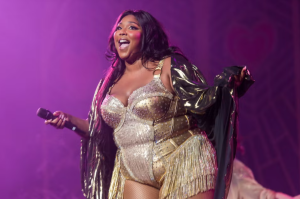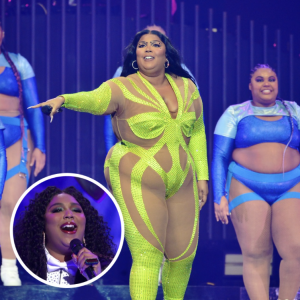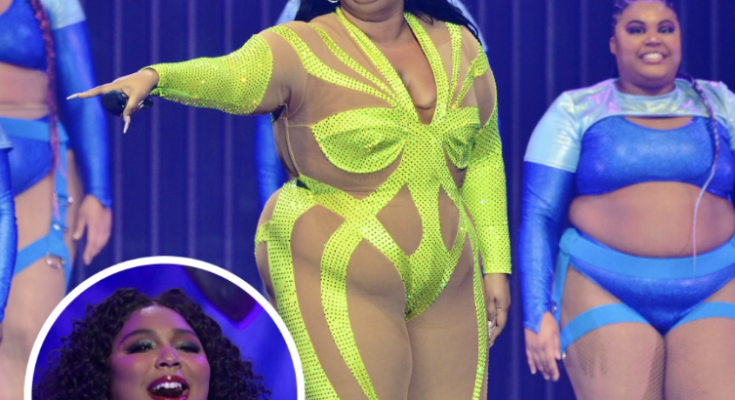
Lizzo Responds to Criticism That She Makes Music for White Audiences
In October 2022, Lizzo, the Grammy-winning artist known for her empowering anthems and body positivity, addressed a recurring criticism: that her music caters predominantly to white audiences. In a candid interview with Vanity Fair, Lizzo clarified her artistic intentions and the personal significance behind her work.
The Criticism
The notion that Lizzo’s music is tailored for white listeners has been a topic of discussion among some critics and fans. This perception often arises when Black artists achieve mainstream success and their audiences become predominantly white. The concern is that such artists may be distancing themselves from their cultural roots or altering their sound to appeal to a broader, often white, demographic.
Lizzo’s Response
Lizzo responded directly to this criticism, emphasizing her identity and the authenticity of her music. She stated, “I am not making music for white people. I am a Black woman, I am making music from my Black experience, for me to heal myself [from] the experience we call life” .
She further explained that when Black audiences see a significant number of white faces in the crowd, they might feel excluded, thinking the music isn’t for them. Lizzo acknowledged this sentiment but pointed out that as Black artists reach a certain level of popularity, their audiences often become more racially diverse .
The Role of Black Music in Her Work
Lizzo highlighted the influence of Black musical pioneers on her work. She drew parallels between her music and that of artists like Sister Rosetta Tharpe, Tina Turner, Diana Ross, and Beyoncé, noting that these icons also attracted predominantly white audiences without compromising their cultural essence .
She emphasized that her music is deeply rooted in Black culture, drawing inspiration from genres like funk, soul, and R&B. For Lizzo, creating music is a form of self-expression and healing, deeply connected to her Black identity.
The Importance of Representation
Lizzo also discussed the significance of representation in music. She expressed the need for self-love anthems within the Black community, stating, “We are the most marginalized and neglected people in this country. We need self-love and self-love anthems more than anybody” .
By producing music that resonates with her experiences and emotions, Lizzo aims to provide a voice for those who may feel underrepresented or overlooked in mainstream media.
Public Reaction
The public’s reaction to Lizzo’s statements has been mixed. Supporters praised her for standing firm in her identity and artistic vision, while critics questioned her inclusivity. Some fans of color expressed feelings of exclusion, believing that Lizzo’s music, while rooted in Black culture, should be accessible to all listeners.
However, Lizzo has consistently emphasized that her music is not about exclusion but about authenticity. She clarified that while her experiences as a Black woman inform her music, she does not intend to gatekeep her message. Instead, she hopes her music can bridge gaps and foster understanding among diverse audiences.
The Broader Conversation
Lizzo’s comments have sparked a broader conversation about race, identity, and authenticity in the music industry. They highlight the challenges Black artists face in maintaining their cultural identity while achieving mainstream success. The discussion also touches on the complexities of audience demographics and the expectations placed on artists to cater to diverse groups.
In her interview, Lizzo acknowledged the complexities of her position. She recognized that as her popularity grows, her audience becomes more diverse, but she remains committed to producing music that reflects her truth and experiences.
Conclusion
Lizzo’s response to the criticism that she makes music primarily for white audiences underscores her commitment to authenticity and self-expression. By staying true to her Black identity and experiences, she continues to create music that resonates with her and her community. While her audience may be diverse, the core of her work remains rooted in her personal journey and cultural heritage.
Through her music, Lizzo not only entertains but also educates and empowers, fostering a deeper understanding of the Black experience in America. Her willingness to address criticism head-on and remain steadfast in her artistic vision serves as an inspiration to artists navigating similar challenges in the industry.

